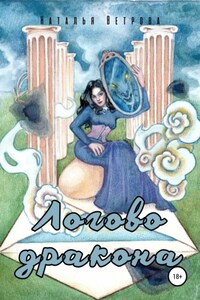"The only one of the name who is not a gentleman"; those words were repeated over and over by a young fellow who walked, one autumn morning, under the shade of old trees and along a street of aristocratic houses in old New Orleans.
He would have been handsome had it not been for the absolutely wicked expression of his face as he muttered to himself while he walked. He looked about twenty-five – dark and tall – so tall as to be a noticeable man among many men, and so well proportioned, and so confidently careless in movement as not to be ungainly – the confidence of strength.
Some negroes whom he passed turned to look after him, even the whites he met eyed him seriously. He looked like a man off a sleepless journey, his eyes were bloodshot, his face haggard, and over all was a malignant expression as of lurking devilishness.
He stopped at a house set back from the street, and half-smothered in the shade of the trees and great creeping vines that flung out long arms from the stone walls. There was a stately magnificence about its grand entrance, and its massive proportions – it showed so plainly the habitation of wealth. Evidently the ill-natured looking individual was not a frequent visitor there, for he examined the house, and the numbers about, with some indecision; then his eyes fell on the horse-block, in the stone of which a name was carved. A muttered something, which was not a blessing, issued from his lips as he read it, but with indecision at an end he strode up the walk to the house. A question was answered by the dubious-looking darky at the door, and a message was sent somewhere to the upper regions; then the darky, looking no less puzzled, requested the gentleman to follow him to the "Young Massa's" study. The gentleman did so, noting with those wicked side glances of his the magnificence of the surroundings, and stopping short before a picture of a brunette, willowy girl that rested on an easel. The face was lovely enough to win praise from any man, but an expression, strangely akin to that bestowed on the carven name outside, escaped him. Through the lattice of the window the laughter of woman came to him – as fresh and cheery as the light of the young sun, and bits of broken sentences also – words of banter and retort.
"Ah, but he is beautiful – your husband!" sighed a girlish voice with the accent of France; "so impressibly charming! And so young. You two children!"
Some gay remonstrance against childishness was returned, and then the first voice went on:
"And the love all of one quick meeting, and one quick, grand passion that only the priest could bring cure for? And how shy you were, and how secret – was it not delightful? Another Juliet and her Romeo. Only it is well your papa is not so ill-pleased."
"Why should he be? My family is no better than my husband's – only some richer; but we never thought of that – we two. I thought of his beautiful changeable eyes, and he thought of my black ones, and – well, I came home to papa a wife, and my husband said only, 'I love her,' when we were blamed for the haste and the secrecy, and papa was won – as I think every one is, by his charming boyishness; but," with a little laugh, "he is not a boy."
"Though he is younger than yourself?"
"Well, what then? I am twenty-three. You see we are quite an old couple, for he is almost within a year of being as old. Come; my lord has not yet come down. I have time to show you the roses. I am sure they are the kind you want."
Their chatter and gaiety grew fainter as they walked away from the window, and their playful chat added no light to the visitor's face. He paced up and down the room with the eager restlessness of some caged thing. A step sounded outside that brought him to a halt – a step and a mellow voice with the sweetness of youth in it. Then the door opened and a tall form entered swiftly, and quick words of welcome and of surprise came from him as he held out his hand heartily.
But it was not taken. The visitor stuck his hands in the pockets of his coat, and surveyed his host with a good deal of contempt.
Yet he was a fine, manly-looking fellow, almost as tall as his visitor, and fairer in coloring. His hair was a warmer brown, while the other man's was black. His eyes were frank and open, while the other's were scowling and contracted. They looked like allegorical types of light and darkness as they stood there, yet something in the breadth of forehead and form of the nose gave a suggestion of likeness to their faces.
The younger one clouded indignantly as he drew back his offered hand.
"Why, look here, old fellow, what's up?" he asked hastily, and then the indignation fled before some warmer feeling, and he went forward impulsively, laying his hand on the other's arm.
"Just drop that," growled his visitor, "I didn't come here for that sort of thing, but for business – yes – you can bet your money on that!"
His host laughed and dropped into a chair.
"Well, you don't look as if you come on a pleasure trip," he agreed, "and I think you might look a little more pleasant, considering the occasion and – and – everything. I thought father would come down sure, when I wrote I was married, but I didn't expect to see anyone come in this sort of a temper. What is it? Has your three-year-old come in last in the fall race, or have you lost money on some other fellow's stock, and what the mischief do you mean by sulking at me?"










